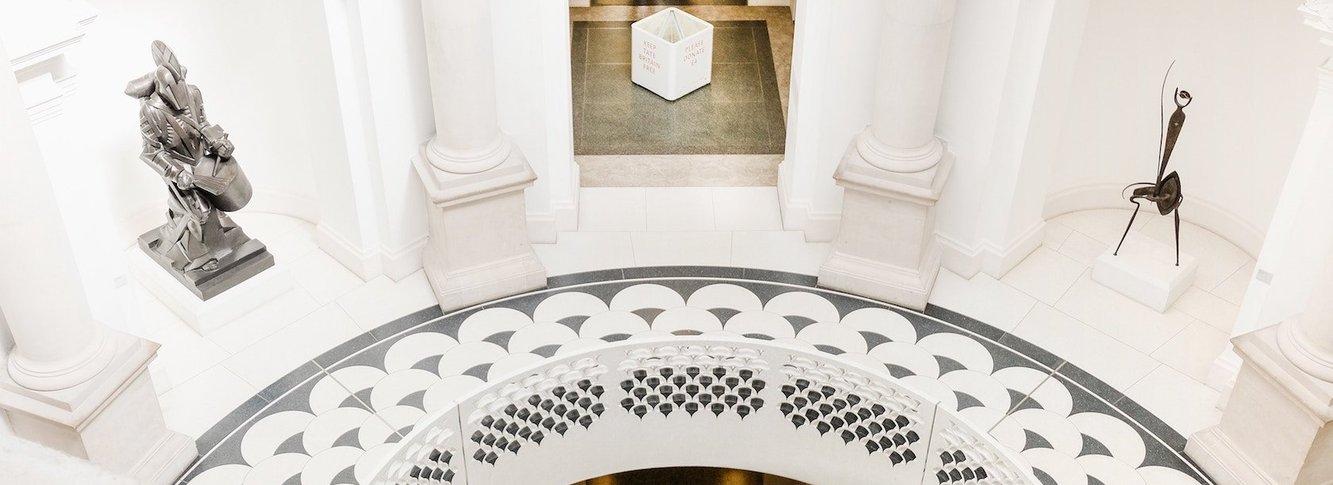| 6 mins read
There is a table at the Tate Britain restaurant that the waiters there always referred to as ‘Professor King's table’. It is situated near the bar, a discreet distance from other tables, so that conversations would not be overheard.
This was where Tony King would have lunch with those politicians (and civil servants) who might have something interesting to tell him about current political developments and could be lured to make the short walk along Millbank from Westminster and Whitehall.
People liked to talk to Tony, not just because he was so amiable, but because of his undiminished curiosity about the business of politics and about those who engaged in it.
Tony King combined scholarship with a real-world grasp that few could match. This was evident both in his public activities and in his published work. His studies of legislatures and of career politicians changed the way in which issues were viewed and he was skilled at identifying emerging trends before anyone else. He analysed the failings of government, but always as a practical improver. He showed political scientists that it was possible to combine good scholarship with an ability to communicate.
When I chaired the Public Administration Select Committee, which I did for over a decade, I made sure that Tony King was a regular witness in our inquiries. This was because he could be relied upon to combine scholarly expertise with a real-world grasp that few could match.
For example, when there was a great fuss about the number of special advisers during the early Blair years and we duly inquired into the matter, along came Tony to say that numbers was not really the issue. If they were doing a good job then you might want to have more of them; and fewer if not. Besides, compared with most other countries, Britain was an outlier in its limited use of political appointments in the government machine.
Whatever Tony wrote about, it was the combination of scholarship with a feel for the practicalities of political life that always marked out his work. Its effect was often to change the way in which an issue was viewed, or to identify a trend before anyone else had spotted it.
His pioneering study of career politicians—’The rise of career politicians in Britain—and its consequences’ —anticipated the more recent interest in this whole issue. He was able to show, by meticulous examination of the historical record, that there had always been career politicians in Britain, including the most notable figures. In that sense they were not a new phenomenon. However, what was new was the virtual disappearance of the non-career politician from British politics, with the result that those engaged in politics had a diminished experience of life beyond. He had opened up an issue that gained powerful traction a generation later.
If we wanted better government, we should be concerned (amongst other things) with getting better politicians. And Tony King did want better government. Never cynical or detached, he was a practical improver who wanted politicians and governments to be as good as they could be.
This was evident in his broadcasting and journalism, but also in his writing. Tony was a natural communicator, eschewing academic narrowness and the impenetrable jargon that often accompanied it, someone who was prepared to tackle the big picture and to do so in a way that engaged the reader. Nowhere was this more evident than in his sparkling Hamlyn lectures in 2000, published as Does the United Kingdom Still Have a Constitution?, which was then extended into book form in The British Constitution.
It was this talent for writing in a way that could reach an audience beyond the academy that made him a natural choice for Penguin when they wanted someone to author Who Governs Britain? in their new series of Pelican Introductions. This was to be his last book, so it has to be regarded as his last word.
If he had a remedy to ‘the way we are governed now’, it was cultural rather than institutional. His most intense dislike was always the entrenched adversarialism of the British way of doing politics, noting that ‘there are probably few other countries in which party-political point-scoring is so incessant’. He lamented the fact that when you turned on the radio in the morning you knew at once if it was a politician who was talking.
His preferred alternative was what he described as ‘the Nordic style’, which involved agreeing where possible and disagreeing where necessary. He was too good a political scientist to be dewy-eyed about the Nordic (or any other) kind of politics, but he did think that a more consensual political style involving a search for agreement brought real policy advantages.
As this turned out to be his last word, it is something worth hanging on to. He thought government in Britain was still better than most, but wanted it to remedy its deficiencies and to up its game.
He also showed that it was possible to combine impeccable scholarship with an ability to speak to a wider public in an accessible and engaging way about issues that mattered. His best legacy would be for that ambition to be taken up by others.
That table at the Tate might no longer be occupied by the King, but it should inspire an army of academic followers.
Need help using Wiley? Click here for help using Wiley

